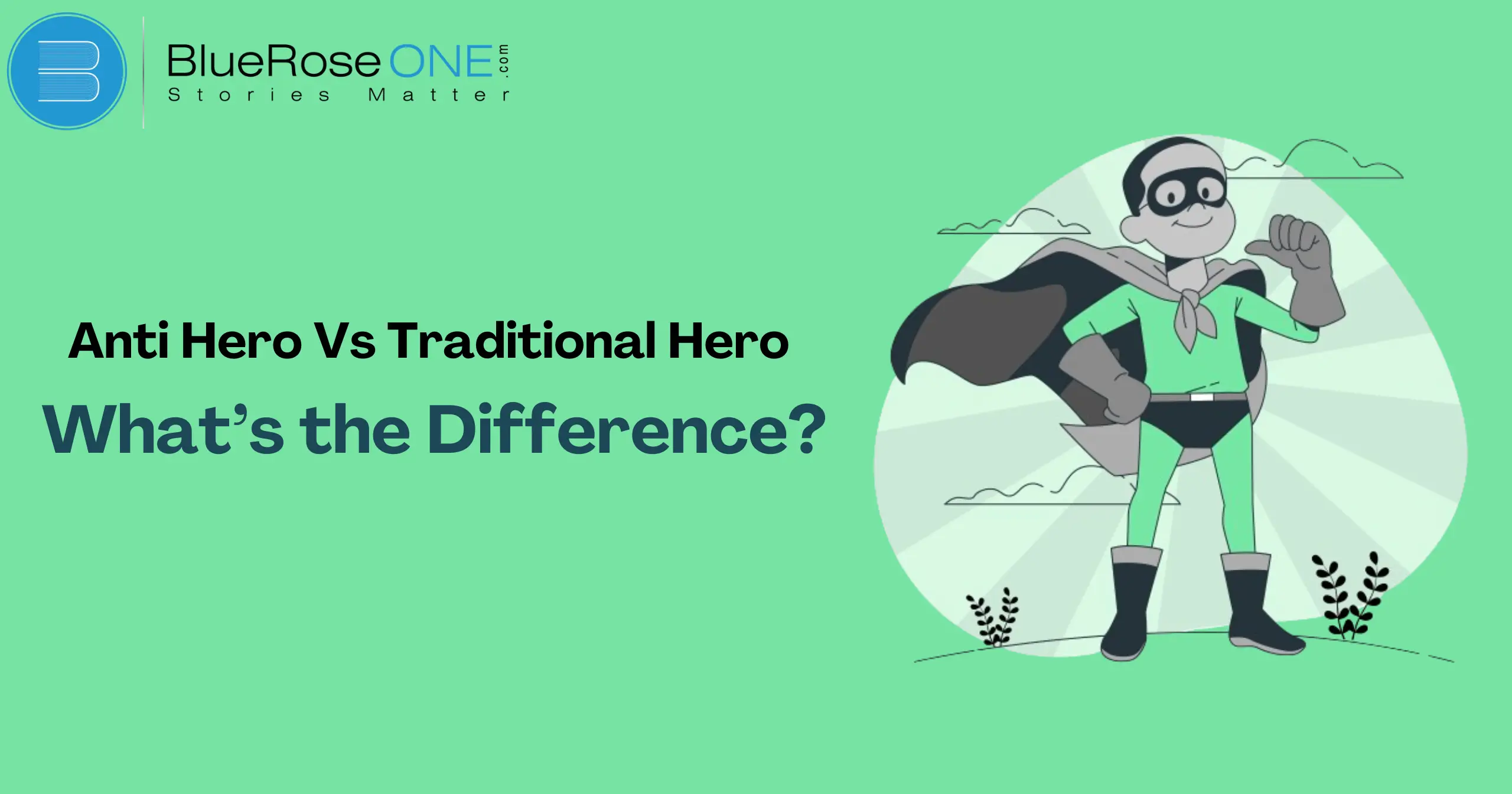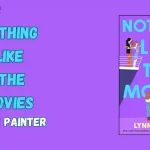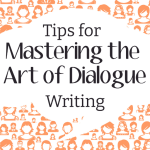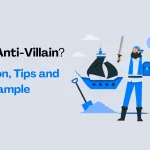Any fan of literature or media must be able to distinguish between an anti hero and a traditional hero. These two kinds of characters have distinct functions and elicit distinct reactions from viewers. Let’s examine what makes them unique.
Characteristics of a Traditional Hero
Moral Integrity
Moral rectitude is frequently used to characterize a traditional hero. They constantly make decisions that are guided by high moral standards and exhibit bravery, honesty, and a sense of fairness.
A traditional hero’s actions are determined by a strong sense of right and wrong, in contrast to an anti hero, who could have dubious morality and convoluted motivations.
Because of their unshakable dedication to doing good, they are dependable and commendable characters in both fiction and real life.
You may also read: Literary Elements: A Complete List of Powerful Literary Devices
Courage and Bravery
The main characteristics of a conventional hero are bravery and courage. These brave people take risks and even put their life in danger to save others. In contrast to an anti-hero, who could have moral dilemmas, a traditional hero is morally self-aware.
Their courageous deeds, which exhibit strength and selflessness, inspire and defend. Classical heroes, whether from literature, mythology, or film, are distinguished by their steadfast dedication to justice and the greater good.
Selflessness and Sacrifice
Traditional heroes are frequently characterized by their sacrifice and altruism. They prioritize the needs of others before their own, even when doing so puts them in grave danger.
To aid others or further the greater good, these heroes are prepared to forfeit their security, comfort, or enjoyment. Their deeds serve as an example to people around them and draw attention to how drastically different an anti hero is from one who acts in self-interest or for financial gain.
Consistent Virtues
Traditional heroes are defined by their consistent virtues. They embody qualities such as bravery, honesty, and selflessness, always striving to do what is right.
Unlike an anti hero, a traditional hero maintains these virtues regardless of the challenges they face. Their moral compass is unwavering, guiding them to protect others and uphold justice. This consistency in virtues makes them reliable and admired figures in stories and legends.
You may also like: How to Write a Book Blurb: Essential Guide
Characteristics of an Anti Hero
Flawed and Complex Nature
An anti hero differs from a standard hero in that they are frequently imperfect and multifaceted people. In contrast to traditional heroes, who are usually personifications of virtues like bravery and honesty, anti heroes battle moral difficulties and inner demons.
They are more approachable and human since their choices and behaviors are motivated by faulty or individualized goals. Their character is given depth by this complexity, which also draws attention to the morally dubious parts of human behavior.
Questionable Morality
An anti hero frequently makes decisions that are morally dubious and lack a strong moral compass. An anti hero may lie, cheat, or resort to violence in order to further their objectives, in contrast to a traditional hero who constantly defends moral principles.
Their acts are motivated more by selfish goals than by a distinct sense of fairness, which leaves their morality vague and complicated. This stands in sharp contrast to the moral rectitude of a classic hero.
You may also like: Fatal flaw: Definition, Types, Examples and More
Relatable Imperfections
An anti-hero is a character in narrative who, by embracing human flaws, contrasts with the typical hero. The anti-hero frequently battles moral uncertainty, character defects, or nontraditional techniques, in contrast to the perfect traditional hero who personifies ideals of heroism and righteousness.
since of these flaws, audiences find them more relatable and believable since they can relate to their difficulties and complexity.
Anti-heroes subvert preconceived ideas of what it means to be a hero by frequently stepping on morally dubious territory and pursuing their objectives with a healthy dose of justice and self-interest.
Unconventional Heroism
In the realm of heroes, the anti-hero stands apart from the traditional hero in fascinating ways. Known for unconventional heroism, an anti-hero often lacks typical heroic qualities like selflessness or noble intentions.
Instead, they navigate moral gray areas, sometimes resorting to questionable methods for the greater good. Their motivations can be personal, driven by revenge or survival rather than altruism.
This complexity makes them more relatable and reflective of real-life struggles, challenging the idealized image of a traditional hero.
You may also read: Top 10 Tips for Effective Campfire Writing
Origins of the Traditional Hero
Mythology and Ancient Tales
The roots of conventional heroism can be traced in mythology and old stories, where heroes were frequently portrayed as honorable individuals with extraordinary bravery and power. Like Gilgamesh in Mesopotamian mythology or Hercules in Greek mythology, these heroes set forth on missions to vanquish monsters and defend their cities.
They gained respect and adoration by embodying courage, honor, and selflessness. On the other hand, the idea of the anti-hero, which presents people devoid of conventional heroic qualities, came around later.
Characters that are anti-heroes, like Deadpool or Robin Hood, frequently question social standards and display defects like moral ambiguity or self-serving motivations, which adds complexity to the narrative dynamic.
You may also like: The Best Book Editing Services for Authors in 2025
Historical Examples
Examining the historical instances of the traditional hero reveals a recurring pattern of bravery, honor, and heroic deeds. These characteristics are embodied by heroes like King Arthur in medieval folklore and Achilles in Greek mythology, who frequently set forth on missions to vanquish evil or defend their people.
An anti-hero, such as Robin Hood, on the other hand, defies convention by employing unusual means, frequently for a just cause but with debatably moral behavior.
This difference provides a nuanced and perhaps inaccurate picture of heroism by highlighting the ways in which anti-heroes deviate from conventional heroic ideals.
Evolution in Literature
The conventional hero’s development in literature can be followed through several phases. Heroes were originally portrayed as virtuous individuals who embodied moral principles like justice and honor, and who showed extraordinary courage.
But as time went on, the idea of the hero changed to encompass more nuanced figures regarded as anti-heroes. In contrast to traditional heroes, anti-heroes are flawed or have dubious morals, but they are still important to the story and sometimes even go against what is traditionally considered to be a hero. This change is a reflection of shifting social mores and the demand for more complex narratives.
You may also like: Ultimate Guide to Generating Fiction Story Ideas
Origins of the Anti Hero
Early Examples in Literature
Greek mythology and classical literature contain some of the earliest instances of the anti-hero in literature. In contrast to the conventional hero, who represents virtues like bravery and selflessness, the anti-hero frequently exhibits flaws in their character, such as cynicism or moral uncertainty.
Achilles, a great warrior from Homer’s “Iliad,” is a prime example of an early anti-hero. Unlike characters like Hector, who are idealized heroes, Achilles is motivated by resentment and pride in himself. The foundation for examining complicated and conflicted protagonists in narrative was laid by these early examples.
Influence of Modern Psychology
The roots of the anti-hero as opposed to the traditional hero are greatly influenced by contemporary psychology. The anti-hero is complicated and frequently faulty, in contrast to the traditional hero, who embodies idealized traits like bravery and altruism.
According to contemporary psychology, people identify with anti-heroes because they more accurately depict human frailties and hardships. This transformation in storytelling reflects societal shifts towards a deeper exploration of moral ambiguity and personal problems.
Walter White from “Breaking Bad” is a prime example of this pattern, drawing viewers in with their complex yet flawed characters.
You may also read: First Person Point of View: An Essential Guide
Cultural Shifts in Storytelling
With the advent of the anti-hero, who stands in stark contrast to the conventional hero archetype, storytelling has witnessed a significant cultural shift in recent decades.
In contrast to the upright and honorable conventional hero, the anti-hero is frequently imperfect, morally dubious, and prone to making poor choices. This development is a reflection of shifting social mores and a demand for deeper, more nuanced characters that go against the grain of traditional heroics.
Such characters as Deadpool and Walter White from “Breaking Bad” are prime examples of this trend, appealing to viewers who value inner turmoil and realism over overly simple heroics.
You may also read: Why You Should Use Professional Book Marketing?
Psychological Appeal of Traditional Heroes
Inspiration and Aspiration
It becomes clear from examining the psychological attractiveness of traditional heroes that these characters frequently exemplify virtues like bravery, selflessness, and steadfast moral values.
Classical heroes arouse admiration and ambition with their selfless deeds and resilience in the face of hardship. They act as role models, inspiring others to aspire to excellence in their own lives and imitate their qualities.
Anti-heroes, on the other hand, subvert this paradigm by having imperfect or morally dubious characteristics. This appeals to viewers who want characters that capture the complexity of actual life rather than idealized qualities.
Clear Moral Compass
The traditional hero is distinguished in the world of heroes by their unmistakable moral compass, which acts as a constant source of integrity and morality. Traditional heroes exhibit qualities like bravery, fairness, and selflessness, in contrast to anti-heroes who frequently straddle moral boundaries.
They continuously act in a way that upholds their ideals, setting an example for others to follow. This sharp contrast between anti-heroes and standard heroes draws attention to the attractiveness of moral simplicity in storytelling as opposed to moral ambiguity, as well as the moral conundrums that these characters must overcome to fulfill their unique roles in stories.
Idealization of Human Virtues
The idealization of human values is the difference between anti-heroes and traditional heroes in the world of storytelling. Classical heroes frequently exemplify virtues like bravery, altruism, and moral integrity.
They arouse admiration and speak to our desire for justice and bravery by symbolizing the victory of good over evil. Anti-heroes, on the other hand, straddle the boundaries of traditional virtue.
They might be flawed and behave in a way that is morally dubious, which would challenge dogmatic ideas about what is right and wrong. They may be more realistic and representative of actual human challenges due to their intricacy.
You may also read: Dialogue Tags: Definition, Tips, and Examples
Psychological Appeal of Anti Heroes
Relatability and Realism
When it comes to storytelling, anti-heroes are more appealing because they are more realistic and relatable than traditional heroes. Anti-heroes are frequently flawed and multifaceted, reflecting the difficulties and imperfections of real life.
In contrast to conventional heroes, who personify idealized qualities like bravery and selflessness, anti-heroes resolve personal problems and moral ambiguity.
Viewers who find their difficulties and motivations more genuine and relatable will find resonance in this representation. Anti-heroes present a nuanced viewpoint that captures the nuances of the human experience by questioning traditional heroism.
Moral Ambiguity
Because they are morally ambiguous, anti-heroes in fiction have a certain psychological appeal that sets them apart from typical heroes. Anti-heroes frequently straddle the morally dubious line, in contrast to traditional heroes who personify unambiguous characteristics like bravery and justice.
In the service of lofty objectives, they could carry out ethically dubious actions or exhibit imperfect traits in addition to their valiant actions.
In contrast to the simple heroics of traditional characters, this complexity offers a deeper and more nuanced perspective that resonates with audiences by portraying the faulty nature of human morality.
Cathartic Exploration of Flaws
Through their cathartic examination of imperfections, anti-heroes in fiction provide a fascinating counterpoint to traditional heroes. Anti-heroes, in contrast to traditional heroes, frequently battle moral uncertainty, inadequacies, or even darker impulses.
Traditional heroes are characterized by noble traits like bravery and selflessness. Audiences find great resonance in this exploration because it highlights the complexity of human nature.
By being flawed, anti-heroes subvert traditional ideas of heroism and encourage viewers to consider the hazy boundaries between right and wrong as well as the frequently erratic roads to redemption.
You may also like: Book Cover Sizes: What are the Right Dimensions for Your Book?
Comparative Analysis
Situational Responses
Situational responses are essential for emphasizing the differences between antiheroes and standard heroes in the comparative analysis of these characters. Antiheroes frequently respond to difficulties in novel ways, perhaps with moral ambiguity or self-serving intentions.
Rather than strictly adhering to traditonal heroic values like selflessness and righteousness, they tend to be pragmatic in their approach to navigating ethically dubious situations.
On the other hand, traditional heroes usually react by taking actions motivated by lofty principles like justice and selflessness, striving to sustain moral norms without compromising. The obvious distinctions in narrative style and character development between these two archetypes are highlighted by these situational reactions.
You may also like: Book Review: Lord of the Flies by William Golding
Conflict Resolution Approaches
An analysis of the Conflict Resolution Approaches of an anti-hero and a standard hero reveals notable distinctions in how they handle conflict. Traditionally, heroes have embodied moral and ethical values and have attempted to resolve problems via the use of moral principles and noble deeds.
To bring about peace, they place a high value on diplomacy, negotiation, and just compromise. By contrast, anti-heroes are frequently motivated by personal agendas or a disdain for social norms and may utilise unusual or ethically dubious strategies including murder, deceit, or manipulation.
They challenge conventional ideas of heroism with their sometimes more pragmatic and morally dubious approach to conflict resolution.
Audience Connection and Engagement
Understanding audience connection and involvement is essential when examining the distinctions between anti-heroes and traditional heroes.
By questioning conventional heroism, anti-heroes frequently enthrall spectators with their imperfect and morally dubious characteristics. They strike a chord with viewers because they portray morally dubious situations and intricacies of real life, which can be more thought-provoking and relevant than the idealized picture of conventional heroes.
On the other hand, viewers looking for aspirational characters and narratives with clearly defined morals find inspiration in traditional heroes’ unchanging virtues and distinct morality.
You may also read: Third Person Point of View vs. First Person: Which is Right for Your Story?
Final Thoughts
To summarize, in literature and culture, traditional heroes and anti heroes have different but complementary roles to play. While anti heroes offer a truthful and approachable portrayal of human nature, traditional heroes serve to inspire and preserve principles.
In order to give audiences a variety of viewpoints on what it means to be a hero, both archetypes are crucial for examining the complex nature of heroism.
















